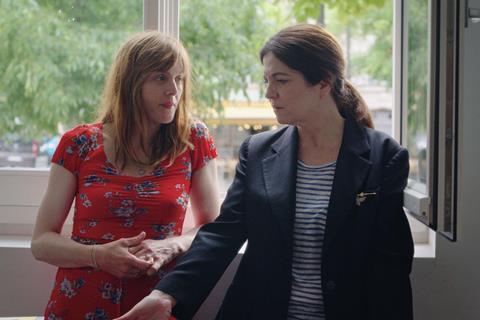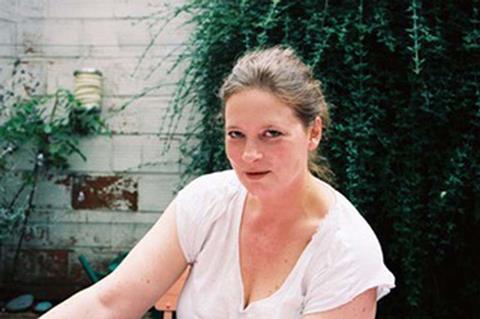
At first glance, the opening night premiere of French filmmaker Sophie Fillieres’ This Life Of Mine in Directors’ Fortnight will be par for the course in Cannes. A comedy-drama starring Agnes Jaoui as a woman who travels to the Scottish Highlands on a journey of self-discovery to help herself out of a funk, it will be attended by cast and crew as well as familiar festival faces.
But absent from the screening will be the director, who died last July, aged 58, just after wrapping the shoot of her seventh feature.
Fillieres’ death shocked the French film industry, even though it was known she had been living with an unspecified illness for a long time. She was revered by colleagues and was known for her acerbic wit and authentic portraits of life, which balanced pathos with sometimes zany humour. Her films regularly made the international festival circuit: The Tall Little One (1994), starring Judith Godreche, Pardon My French (2009) and If You Don’t, I Will(2014) all premiered in Berlin; Ouch (2000) in Locarno; and Nice Girl (2005) in Toronto.
When Fillieres, who had a small role in Anatomy Of A Fall, was hospitalised just after the shoot finished, she learned she would likely not survive the illness and asked her children Agathe and Adam Bonitzer (whom she shares with longtime partner filmmaker Pascal Bonitzer), and her producer Julie Salvador to supervise the post-production process.

“She wanted them to complete the film because, she told me, ‘They have the same north as me,’ like on a compass,” says Salvador. “We tried to keep her north,” adds Adam.
And so, one month after Fillieres’ death, Agathe and Adam joined editor Francois Quiqueré in the cutting room to sift through the rushes along with notes their mother had shared sporadically from her hospital bed.
“In cinema, everything is planned down to the finest detail, but in these situations, there is no plan,” says Salvador, who produces under her Paris-based Christmas In July banner. “We took everything day by day.”
Jour2fête will release the film in France in September and The Party is handling international sales. While a story about an ageing woman confronting her own mortality — including several scenes of its protagonist, Barbie (Jaoui), in hospital — may seem autobiographical, Fillieres wrote the script five years earlier and, in the film’s production notes, she insists: “Barbie isn’t me, she’s just the character through whom I get as close as possible to a truth… It’s about inviting the viewer to look at the world in a mirror, to better understand it, this world whose unintelligibility sometimes overwhelms us, crushes us, frightens us and sometimes lifts us up where we least expect it.”
Despite Fillieres’ contention that This Life Of Mine was not autobiographical, Jaoui tells Screen International she felt at times she was playing her director. “She dressed me in her own clothes,” says the actress. “In the morning, she gave me her rings to wear, and I gave them back at night. The woman who plays the therapist had been her real-life psychologist for 30 years. There was a lot of her in this character.”
The early sequences of the film were even shot at Fillieres’ apartment. This Life Of Mine is the director’s first feature to premiere on the Croisette and Salvador hopes it will serve as a tribute to her career. “Sophie had an ability to blend fantasy and comedy with profound sincerity and emotion, a rare balance especially in French cinema,” says the producer.
“With Sophie, everything becomes poetry, everything becomes funny,” adds Jaoui.
Fillieres wrote that her aim for This Life Of Mine was to portray her lead character as “an endearing figure with whom we can identify in our aspirations and our fears, our joy and our courage in being able to live and curse the fact we have to die one day. And that we can say, for a moment at least, like her, ‘I exist. Here I am.’”
Concludes Salvador: “It’s still a Sophie Fillieres film, but her family allowed it to exist.”























No comments yet